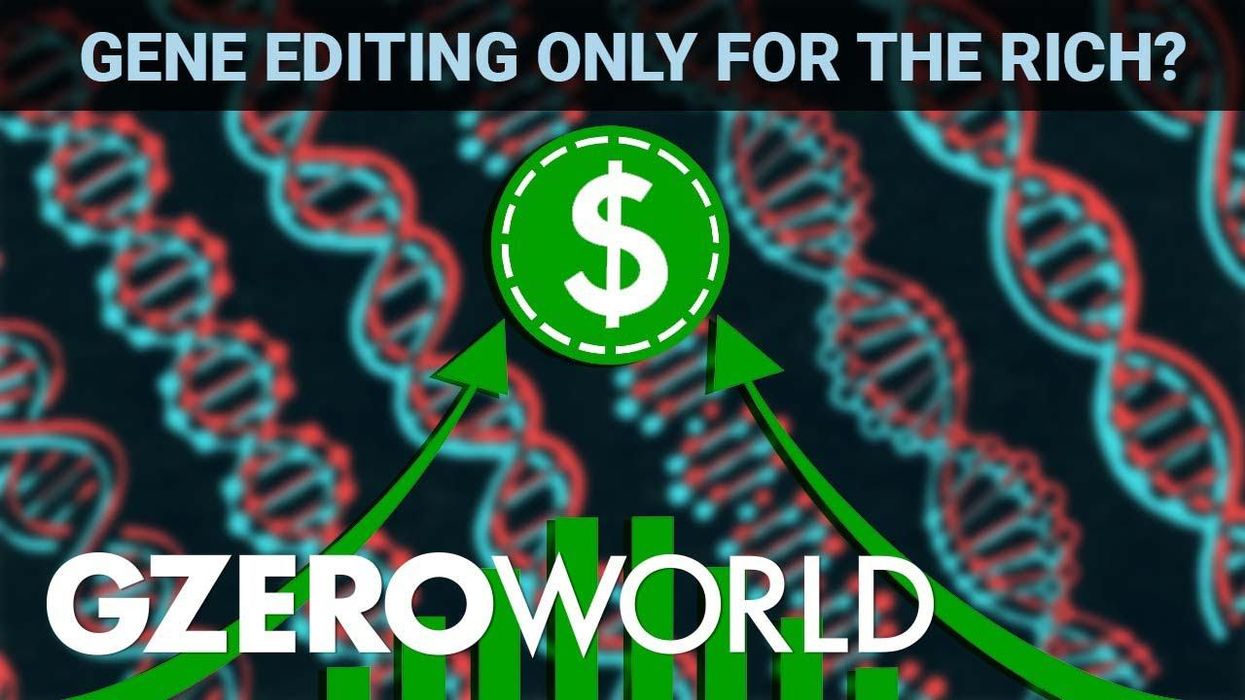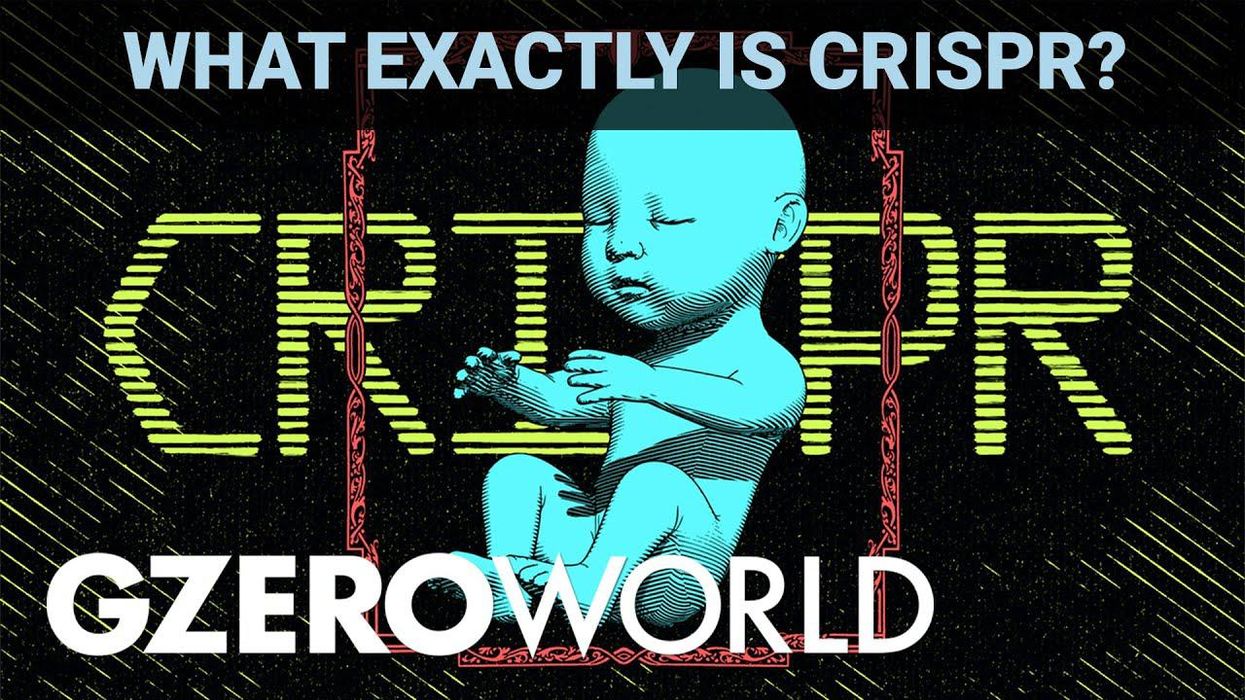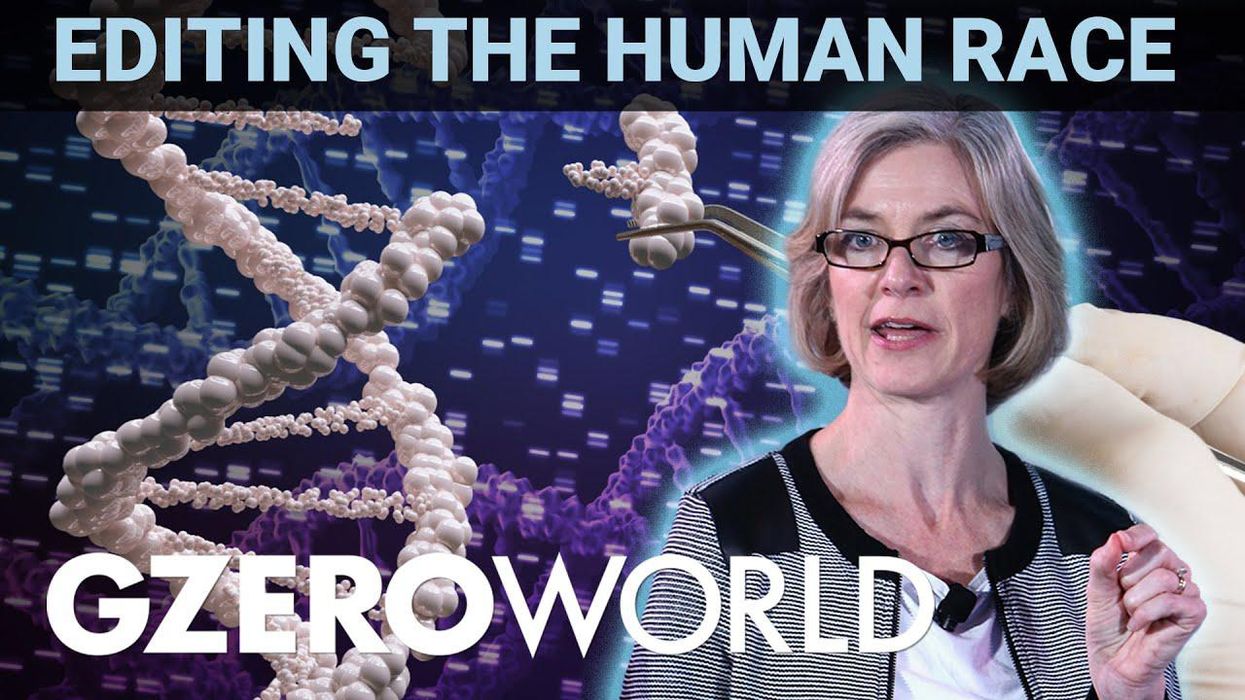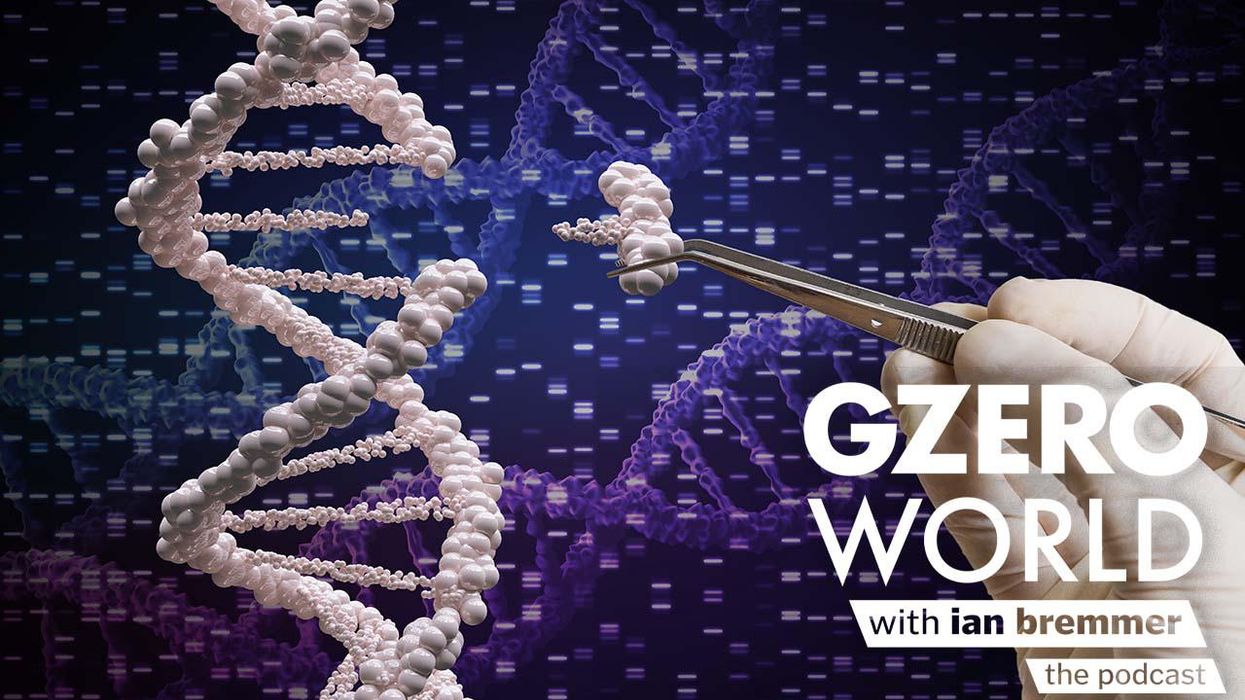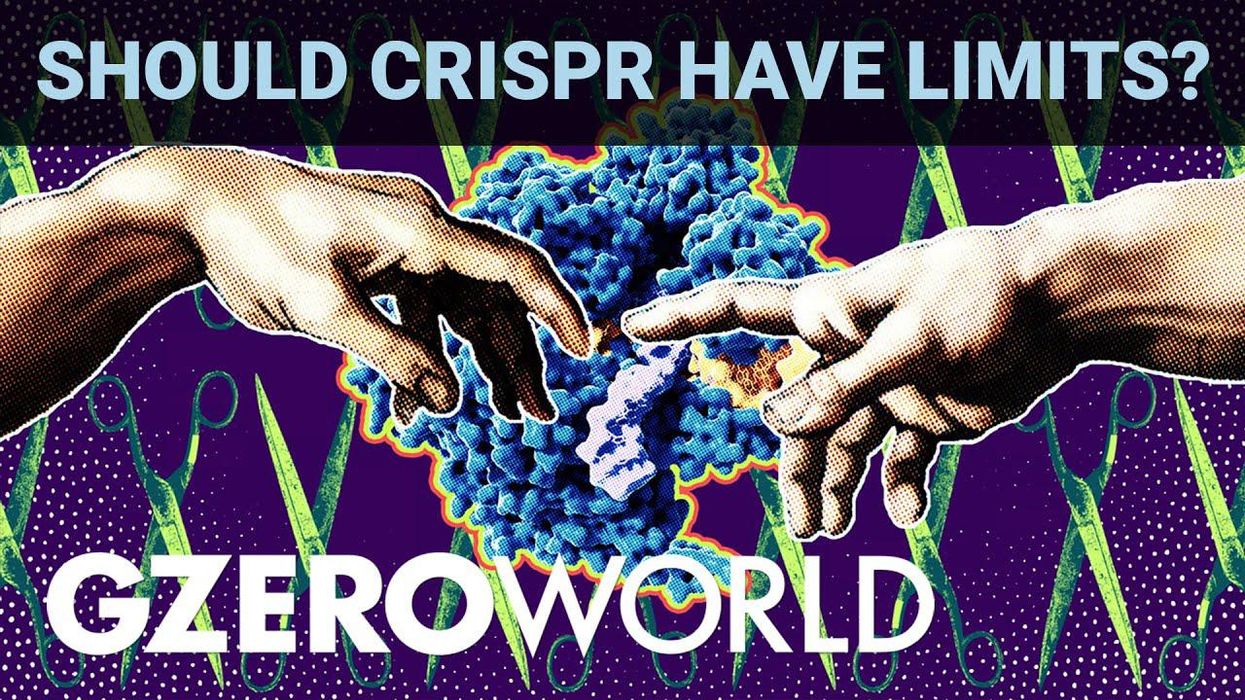GZERO World Clips
Scientist Jennifer Doudna on making CRISPR technology viable — and affordable — for everyone
While global cooperation on public health issues like access to COVID vaccines continues to sputter, a group of scientists from around the world are quietly working on making CRISPR gene-editing technology within reach for rich and poor nations alike. "We're going to want to work as quickly as possible to scale it to a point where that also helps bring down the cost," says Jennifer Doudna, who won the 2020 Nobel Prize in Chemistry for her work on CRISPR. Watch her interview with Ian Bremmer on GZERO World.
Aug 27, 2021
